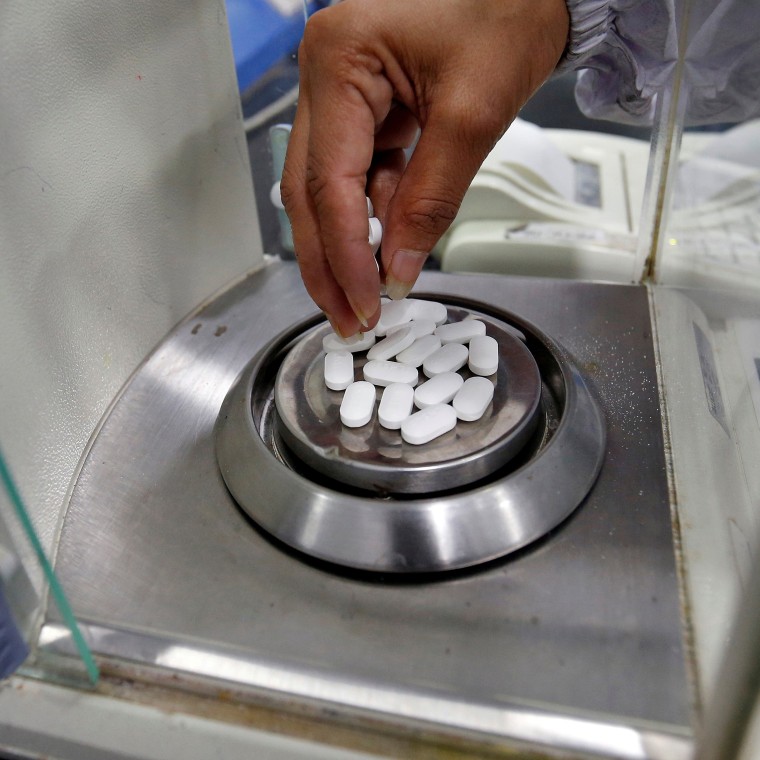At yesterday's White House press briefing, both Donald Trump and Health and Human Services Secretary Alex Azar referenced two medications as "potential COVID-19 treatments." For the administration, this wasn't especially unusual: the president and his team have been talking up some anti-malaria drugs -- chloroquine and hydroxychloroquine -- quite a bit as the coronavirus crisis has intensified.
The underlying problem, however, remains the same. As a CNN report explained, Trump's "over-the-top optimism" is not yet bolstered by the scientific research, "which is extremely limited and anecdotal at this early stage."
On the surface, there are a variety of problems with the White House promoting unproven medications. It generates unnecessary confusion; it causes a run on drugs that many patients rely on; it can lead some to take dangerous risks through self-medicating, etc.
But late last week, Politico had a related report on this, noting another relevant angle: some health officials are "being pulled away from other potential projects to address the president's hunch."
The White House directed health officials to set up a project to track if the antimalarial drugs chloroquine and hydroxychloroquine show promise -- a dayslong effort that distracted from urgent tasks like trials of other medicines thought to have more potential against the virus. Food and Drug Administration officials also reversed a nearly six-year ban on a troubled Indian manufacturer in a bid to secure the drugs, and top advisers to Trump have encouraged other agencies to locate as much of the product as possible. The White House is also pressuring Medicare officials to pay for unproven treatments being given to desperate patients during a pandemic.
Politico talked to one relevant HHS official who said, "There's a ton of people involved in front-line response in the government ... who are getting pulled into meetings to discuss this when the data doesn't support it."
A second HHS official lamented the "time and energy being soaked up by a potential wild-goose chase." The person added, "We have no idea if this works, and the evidence suggests it doesn't."
It was 11 days ago when Trump told reporters, in reference to the medicine, "Look, it may work and it may not work.... I feel good about it. That's all it is. Just a feeling. You know, I'm a smart guy. I feel good about it."

